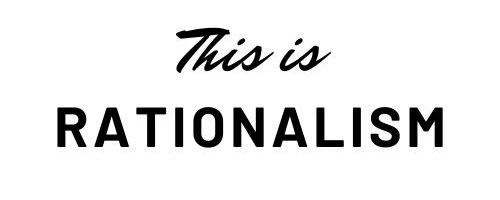
American Rationalism emerged as a philosophical approach rooted in reason, logic, and evidence. Influenced by European thinkers like Descartes and Spinoza, it adapted these ideas to fit the unique social and political challenges of the United States.
This philosophy shaped the nation’s founding principles, emphasizing human potential, natural rights, and democracy. By prioritizing rational thought, American Rationalism sought to create a society where fairness and progress could thrive.
What is Rationalism?
Rationalism is a philosophy that prioritizes reason as the main source of knowledge. It argues that truth comes from logical thinking, not just sensory experience. This idea contrasts with empiricism, which relies on observation and experimentation. Rationalist thinkers believe the mind can uncover universal truths through deduction.
In governance, rationalism advocates for policies rooted in logical analysis. It discourages decisions based on emotion or tradition. By emphasizing reason, it aims to create systems that are fair, efficient, and consistent. This foundation shapes the principles of Administrative Rationalism in modern governance.
The Roots of American Rationalism
Rationalist philosophy began in Europe with thinkers like Descartes, Spinoza, and Leibniz. They emphasized reason, logic, and the pursuit of universal truths. Descartes introduced the idea of doubt as a tool for discovering certainty. Spinoza focused on the connection between reason and ethics. Leibniz explored logic and its role in understanding reality.
American thinkers adopted and adapted these ideas during the Enlightenment. They applied rationalist principles to politics, governance, and society. They used reason to challenge traditional authority and promote democracy. This adaptation laid the groundwork for Administrative Rationalism in American governance.
Key Figures in American Rationalism
#1. Benjamin Franklin
Benjamin Franklin embodied the rationalist approach in both thought and action. He believed in the power of reason to solve practical problems and improve society. His work in science, such as his experiments with electricity, demonstrated a reliance on empirical evidence and logical reasoning. Franklin also emphasized education, self-discipline, and civic responsibility as tools for individual and collective progress.
#2. Thomas Jefferson
Thomas Jefferson integrated rationalist principles into the foundations of American governance. He believed that reason was essential for ensuring liberty and justice. As the principal author of the Declaration of Independence, Jefferson relied on logical arguments to justify the colonies’ break from British rule. His vision of governance included the separation of church and state and the promotion of education to empower citizens.
#3. Thomas Paine
Thomas Paine used rational thought to inspire revolutionary change. In his influential pamphlet Common Sense, Paine appealed to logic and evidence to argue for American independence. He rejected hereditary monarchy and promoted democratic governance based on reason. Paine also challenged religious dogma, advocating for a belief system grounded in rational inquiry and moral principles.
#4. John Adams
John Adams championed rational debate and the application of reason in government. He believed that laws, not individuals, should govern society to ensure fairness and stability. Adams played a crucial role in shaping the U.S. Constitution, advocating for a balanced government with checks and balances to prevent abuse of power. His commitment to rational governance earned him a lasting legacy in American political thought.
#5. James Madison
James Madison applied rationalist principles to design the U.S. Constitution. He believed that careful planning and logical frameworks were necessary to create a functional democracy. Madison’s work on the system of checks and balances was grounded in the idea that human reason could mitigate the flaws of human nature. His contributions established a government structure that remains a model of rational governance.
#6. Ethan Allen
Ethan Allen was a vocal advocate for individual liberty and intellectual freedom. He used reason to critique organized religion, particularly the influence of dogma on personal and societal freedoms. Allen’s writings, such as Reason: The Only Oracle of Man, reflected his belief in rational thought as a guide for ethical and moral decisions. He saw logic and evidence as the foundation for a just and free society.
#7. John Dewey
John Dewey brought rationalism into the modern era by emphasizing the importance of education and scientific inquiry. He believed that rational thinking was essential for a thriving democracy. Dewey advocated for progressive education that encouraged critical thinking and problem-solving. His work connected the principles of rationalism to practical reforms in education, governance, and social progress.
Core Ideas of American Rationalism
#1. Emphasis on reason and logic over emotion
American Rationalism places reason and logic at the center of decision-making processes. It discourages acting on emotional impulses, which can lead to irrational choices. By focusing on logic, rationalist thinkers aim to create solutions that are fair, consistent, and practical. This principle influences everything from policy-making to individual problem-solving.
#2. Belief in human potential and progress
Rationalist thinkers hold a strong belief in the power of human potential. They see individuals as capable of shaping a better future through innovation, education, and effort. This belief underpins the idea of progress, where society can continually improve by applying reason and knowledge to address challenges.
#3. Advocacy for secularism and skepticism of organized religion
Rationalism argues for the separation of religion and state to ensure fairness and freedom. It does not reject personal belief but questions the role of organized religion in governance and lawmaking. Rationalists encourage individuals to seek moral guidance through reason and ethics rather than unquestioned religious authority.
#4. Focus on natural rights and individual liberty
American Rationalism strongly emphasizes natural rights, such as freedom of speech, equality, and the pursuit of happiness. These rights are viewed as inherent and universal, not granted by governments or institutions. Rationalist thinkers advocate for protecting individual liberties as the foundation of a just and democratic society.
#5. Value of scientific inquiry and empirical evidence
Rationalism values the scientific method as a way to uncover truths about the world. Decisions and policies should rely on evidence rather than assumptions or tradition. Rationalist thinkers believe that progress comes from testing ideas, learning from data, and refining approaches based on proven results.
#6. Promotion of education and self-improvement
Education is a cornerstone of rationalism. Rationalist thinkers believe that knowledge empowers individuals to make informed decisions and contribute to society. They emphasize lifelong learning, self-discipline, and intellectual growth as paths to personal and societal improvement.
#7. Commitment to democracy and justice
Rationalism aligns with democratic principles by advocating for governance based on fairness and equality. Rationalist thinkers see reason as essential for creating laws and policies that protect individual rights and promote justice. This commitment ensures that governance serves the interests of all, not just a select few.
#8. Use of reason to guide ethical and moral decisions
Rationalists argue that ethical and moral decisions should be based on reason, not emotion, superstition, or tradition. They believe that logic ensures fairness and consistency in addressing moral dilemmas. By applying reason, individuals and societies can create ethical standards that promote the common good.
Critiques of American Rationalism
#1. Neglect of emotion and spirituality
One critique of American Rationalism is its neglect of emotion and spirituality. Critics argue that relying too heavily on reason overlooks important aspects of human experience. Emotions and spirituality can guide moral and ethical decisions, which rationalism might downplay.
#2. Potential elitism
Rationalism can sometimes be seen as elitist. The emphasis on reason and logic may exclude those who lack access to education or intellectual resources. Critics argue that this can create a divide between the educated elite and the broader public, limiting democratic participation.
#3. Undervaluing tradition
Rationalism is often criticized for undervaluing tradition and established practices. By prioritizing reason above all else, rationalists may dismiss valuable cultural norms or historical practices that have stood the test of time. Some argue that tradition provides important context and stability in society.
#4. Misuse of rational principles
Rational principles can be misused, especially when applied without considering their broader social and ethical implications. Critics argue that using reason as the sole guide for governance can lead to cold, impersonal policies. It can also be used to justify policies that lack compassion or fail to address human complexity.
Closing Thoughts
American Rationalism continues to influence modern thought and governance. Its commitment to reason, logic, and progress has shaped education, democracy, and individual rights.
However, its critiques remind us to balance rationality with emotional and cultural considerations. By addressing these limitations, we can uphold the strengths of American Rationalism while fostering a more inclusive and holistic approach to societal growth.
